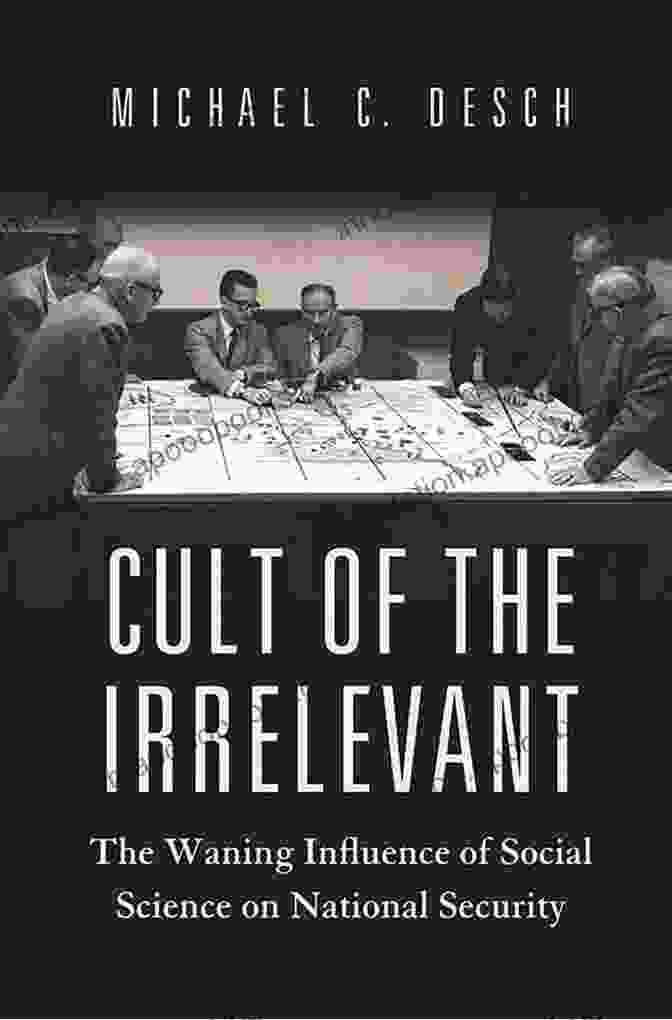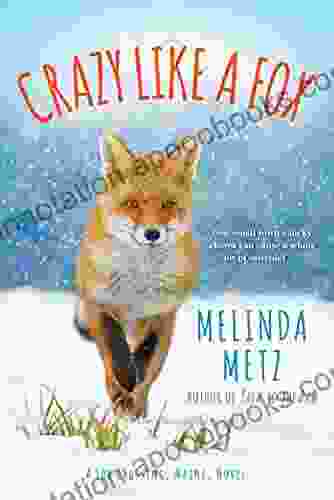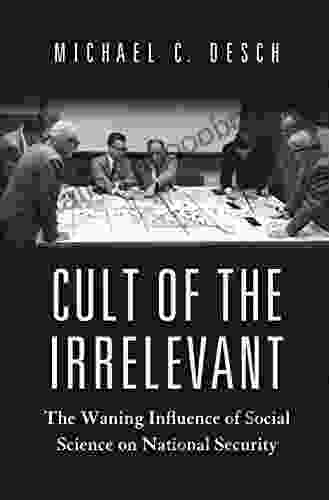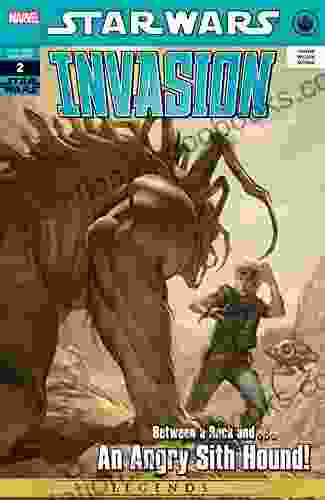Unveiling the Waning Influence of Social Science on National Security: A Comprehensive Exploration

****
In the ever-evolving landscape of national security, social science has long played a pivotal role in shaping policies and informing decision-making. However, in recent times, the influence of social science on national security has been waning. This comprehensive analysis delves into the factors contributing to this decline, examines its implications for national security, and proposes potential remedies to restore its relevance in safeguarding our nations.
4 out of 5
| Language | : | English |
| File size | : | 2439 KB |
| Text-to-Speech | : | Enabled |
| Screen Reader | : | Supported |
| Enhanced typesetting | : | Enabled |
| Word Wise | : | Enabled |
| Print length | : | 353 pages |
| X-Ray for textbooks | : | Enabled |
**Factors Contributing to the Waning Influence**
- Increased reliance on technology: Advancements in technology, such as data analytics and artificial intelligence, have provided governments with new tools for gathering and analyzing information. This has led to a shift away from traditional social science methods, which rely on qualitative data and expert judgment.
- Political polarization: The rise of political polarization has created a climate in which social science research is often dismissed or discredited based on political biases. This has made it challenging for social scientists to provide objective advice to policymakers.
- Lack of funding: Social science research has historically been underfunded compared to other disciplines such as hard sciences and engineering. This has limited the ability of social scientists to conduct rigorous studies and generate evidence-based knowledge.
li> Misperceptions about social science: There are common misperceptions about social science, such as the belief that it is subjective and lacking in rigor. These misconceptions have hindered the recognition and utilization of social science findings in national security policymaking.
**Implications for National Security**
The waning influence of social science on national security has significant implications for our ability to address complex and evolving threats. Without the insights provided by social scientists, policymakers may make decisions based on incomplete or inaccurate information, which could lead to ineffective or even detrimental outcomes. Specifically, the decline of social science in national security can result in:
- Reduced understanding of societal dynamics: Social science provides valuable insights into human behavior, societal trends, and cultural nuances. This knowledge is essential for understanding the motivations of adversaries, predicting the impact of policies, and building effective relationships with foreign partners.
- Over-reliance on technology: While technology can be a powerful tool, it is important to recognize its limitations. Social science methods can complement technology-based approaches by providing context, nuance, and human understanding that machines cannot capture.
Increased risk of unintended consequences: Without the input of social scientists, policymakers may overlook the potential societal and cultural consequences of their decisions. This can lead to unintended consequences that undermine national security objectives.
**Remedies to Restore Relevance**
Recognizing the critical need to restore the influence of social science on national security, several remedies can be implemented:
- Increased funding: Governments should invest more in social science research to ensure that it remains a viable and relevant discipline. This funding should support rigorous studies that generate evidence-based knowledge to inform policymaking.
- Improved communication: Social scientists need to do a better job of communicating their findings to policymakers and the public. They should use clear and accessible language, and they should be responsive to the concerns and questions of policymakers.
- Collaboration: Social scientists should collaborate with policymakers and practitioners to ensure that their research is relevant and useful. They should be involved in the design and implementation of policies, and they should provide ongoing feedback and evaluation.
- Education: It is important to educate policymakers and the public about the value of social science research. This can be done through workshops, conferences, and other outreach activities.
****
The waning influence of social science on national security is a serious concern that needs to be addressed. By investing in social science research, improving communication, fostering collaboration, and educating policymakers and the public, we can restore the relevance of social science and ensure that it continues to play a vital role in safeguarding our nations.
**Call to Action**
If you are concerned about the waning influence of social science on national security, I urge you to take action. Contact your elected officials and let them know that you support funding for social science research. Attend workshops and conferences to learn more about the value of social science. And most importantly, spread the word about the importance of social science in national security.

4 out of 5
| Language | : | English |
| File size | : | 2439 KB |
| Text-to-Speech | : | Enabled |
| Screen Reader | : | Supported |
| Enhanced typesetting | : | Enabled |
| Word Wise | : | Enabled |
| Print length | : | 353 pages |
| X-Ray for textbooks | : | Enabled |
Do you want to contribute by writing guest posts on this blog?
Please contact us and send us a resume of previous articles that you have written.
 Book
Book Novel
Novel Page
Page Chapter
Chapter Text
Text Story
Story Genre
Genre Reader
Reader Library
Library Paperback
Paperback E-book
E-book Magazine
Magazine Newspaper
Newspaper Paragraph
Paragraph Sentence
Sentence Bookmark
Bookmark Shelf
Shelf Glossary
Glossary Bibliography
Bibliography Foreword
Foreword Preface
Preface Synopsis
Synopsis Annotation
Annotation Footnote
Footnote Manuscript
Manuscript Scroll
Scroll Codex
Codex Tome
Tome Bestseller
Bestseller Classics
Classics Library card
Library card Narrative
Narrative Biography
Biography Autobiography
Autobiography Memoir
Memoir Reference
Reference Encyclopedia
Encyclopedia Hanoch Guy Kaner
Hanoch Guy Kaner Christine Kersey
Christine Kersey Chris C Mcnulty
Chris C Mcnulty David R Gillham
David R Gillham Chasity Bowlin
Chasity Bowlin Chinelo Okparanta
Chinelo Okparanta Chris Stamey
Chris Stamey Jonathan Bergmann
Jonathan Bergmann Mike Filey
Mike Filey Richard Alan Schwartz
Richard Alan Schwartz Chris Claremont
Chris Claremont Tracy Souza
Tracy Souza Clara B Ray
Clara B Ray Jay Newman
Jay Newman Ruchika Pahwa
Ruchika Pahwa Jorge Lozano
Jorge Lozano Lee Higgins
Lee Higgins George A Peters
George A Peters Anita Trehan
Anita Trehan Elena Aitken
Elena Aitken
Light bulbAdvertise smarter! Our strategic ad space ensures maximum exposure. Reserve your spot today!

 Christian CarterUnleash the Magic of Music: Embark on a Journey Through the "Music From The...
Christian CarterUnleash the Magic of Music: Embark on a Journey Through the "Music From The... Aldous HuxleyFollow ·17.4k
Aldous HuxleyFollow ·17.4k Sam CarterFollow ·15k
Sam CarterFollow ·15k Eli BlairFollow ·11.8k
Eli BlairFollow ·11.8k Leslie CarterFollow ·7.8k
Leslie CarterFollow ·7.8k Percy Bysshe ShelleyFollow ·11.2k
Percy Bysshe ShelleyFollow ·11.2k Devon MitchellFollow ·5.4k
Devon MitchellFollow ·5.4k Reed MitchellFollow ·4.3k
Reed MitchellFollow ·4.3k Jeremy CookFollow ·5.1k
Jeremy CookFollow ·5.1k

 Kevin Turner
Kevin TurnerDive into the Enchanting World of "Crazy Like Fox": A...
Prepare yourself for a literary adventure...

 Ralph Waldo Emerson
Ralph Waldo EmersonUnlock the Elegance of Daffodil Lace: An Immersive Guide...
: A Tapestry of Delicate...

 Gerald Parker
Gerald ParkerNever Lose An Argument Again: 20 Powerful Techniques From...
Are you tired of losing...

 Xavier Bell
Xavier BellSeven Animal Insertions Filet Crochet Pattern: Embark on...
Welcome to the captivating...

 Eugene Powell
Eugene PowellMagomago in TDS Magomago 12: An Unforgettable Adventure...
Step into the Enchanting World of...

 Marvin Hayes
Marvin HayesSoft Felting Needle Holder Excellence In Reborn Artistry
Unveiling the Secrets of the...
4 out of 5
| Language | : | English |
| File size | : | 2439 KB |
| Text-to-Speech | : | Enabled |
| Screen Reader | : | Supported |
| Enhanced typesetting | : | Enabled |
| Word Wise | : | Enabled |
| Print length | : | 353 pages |
| X-Ray for textbooks | : | Enabled |










